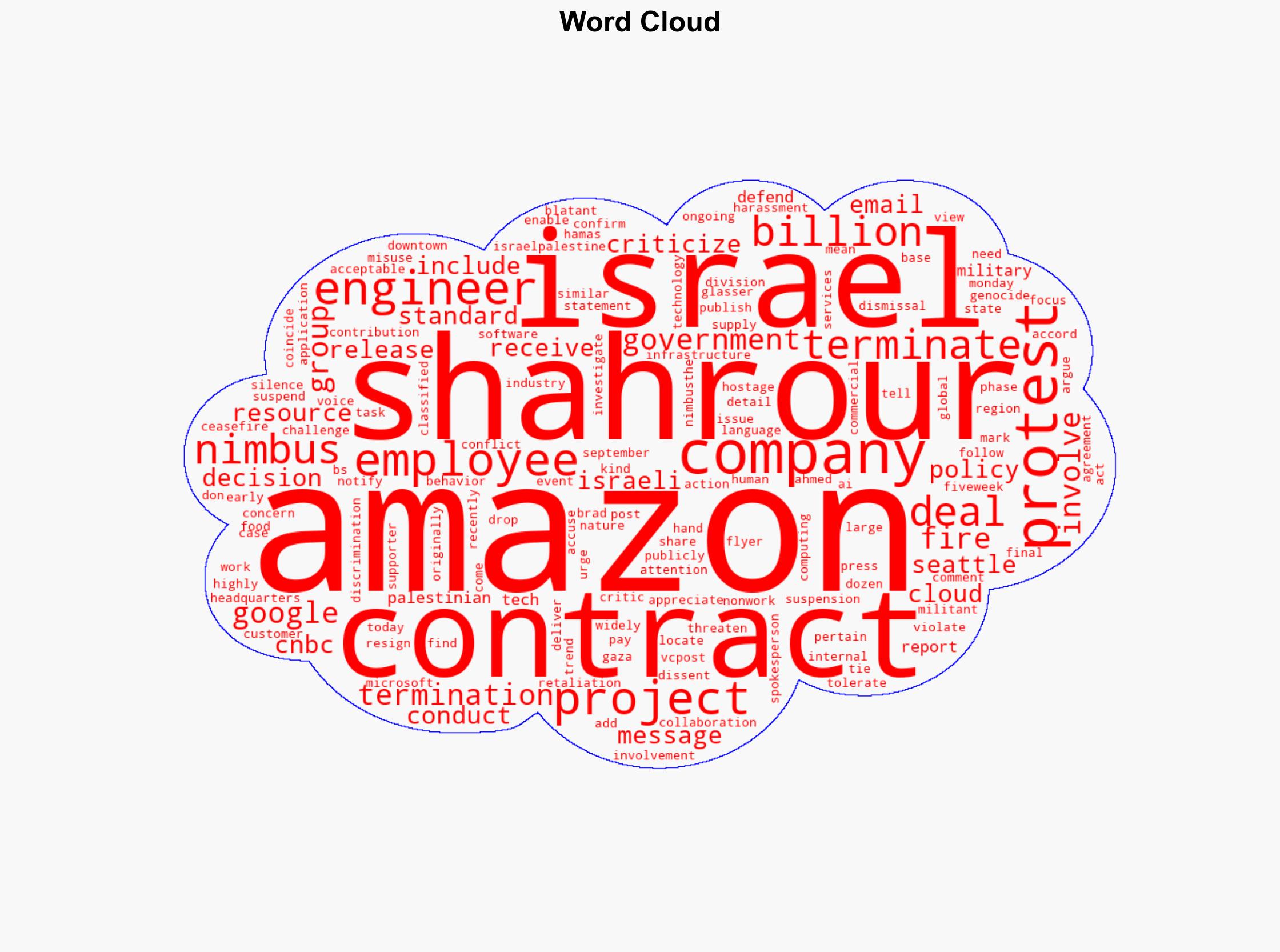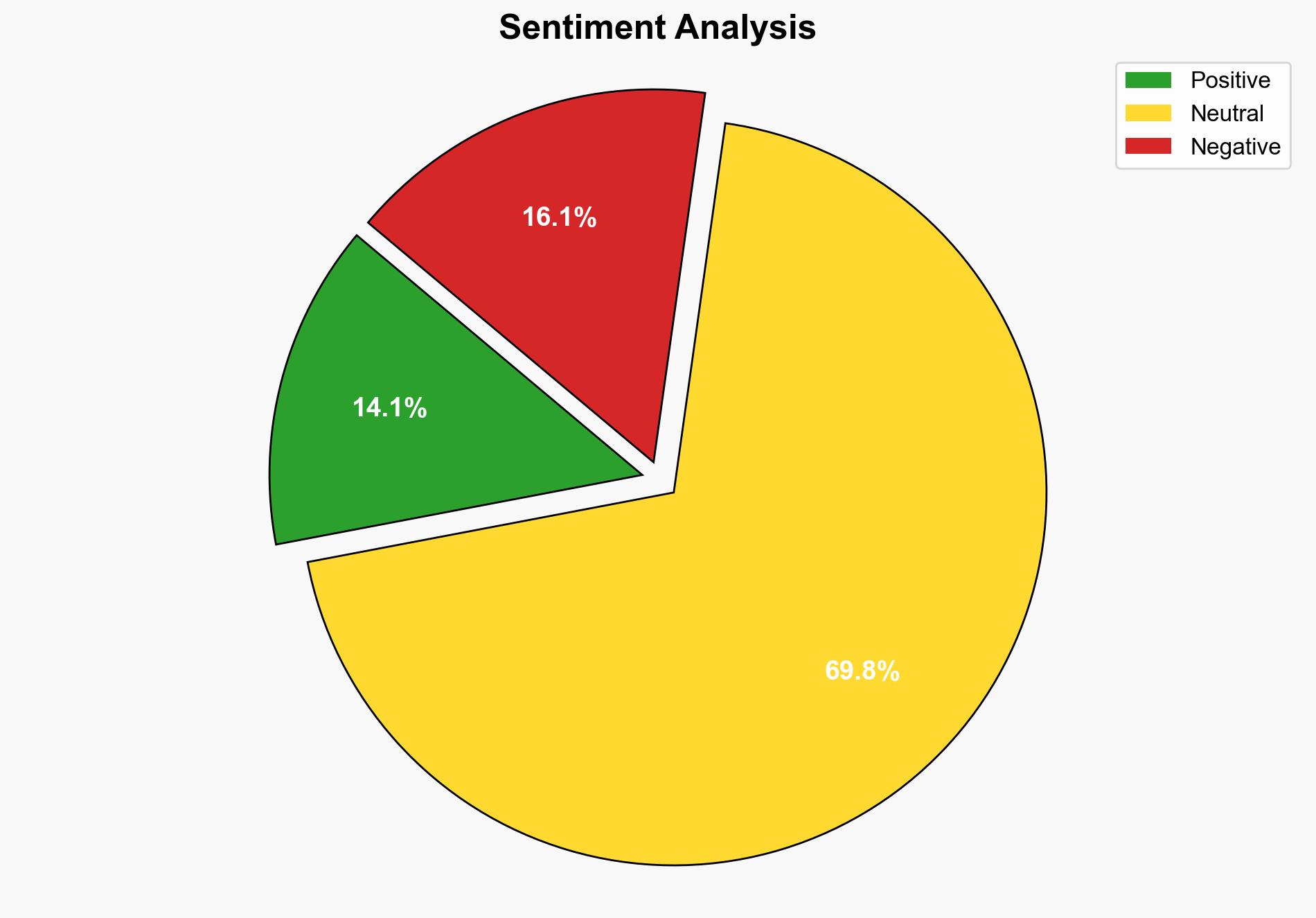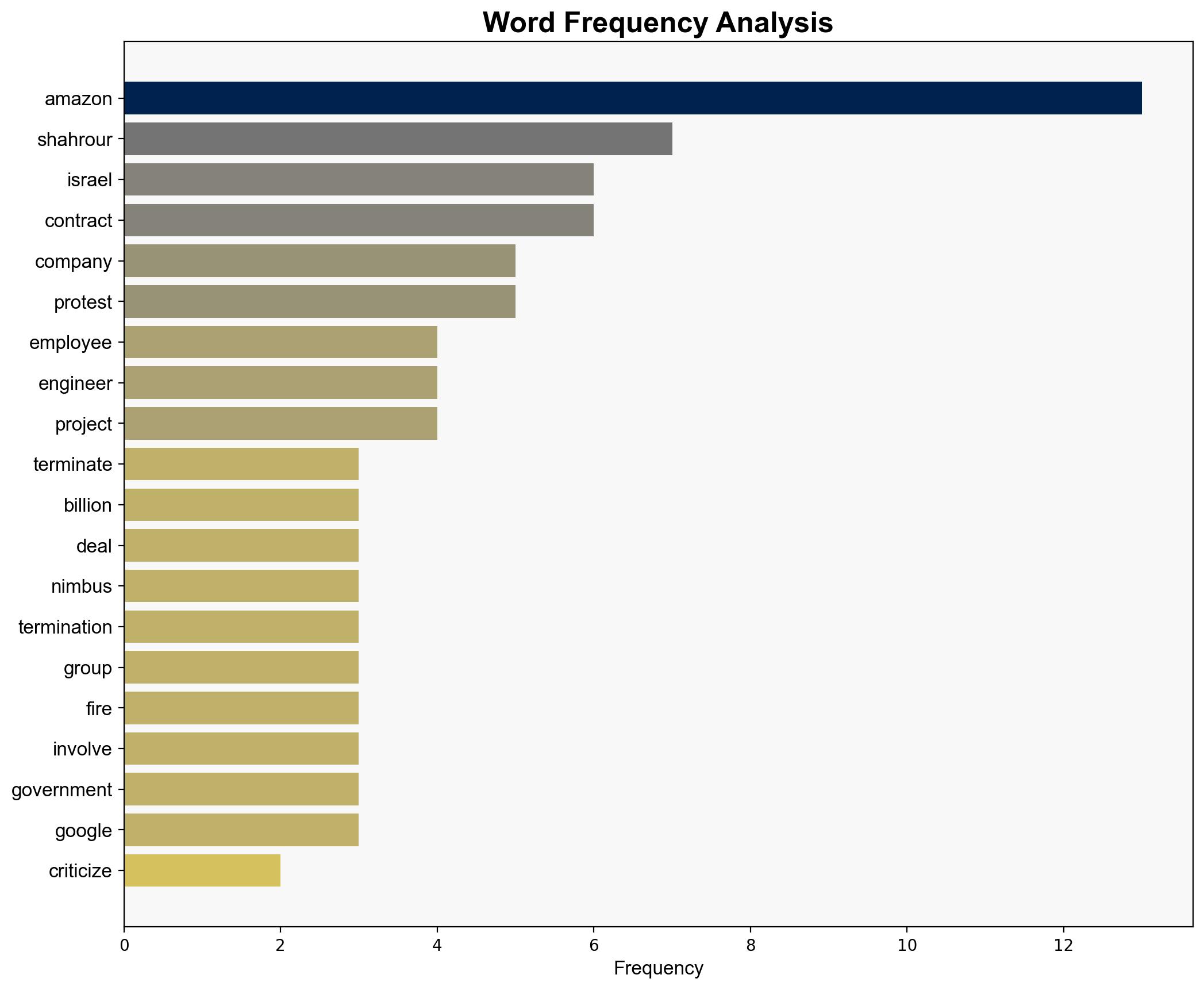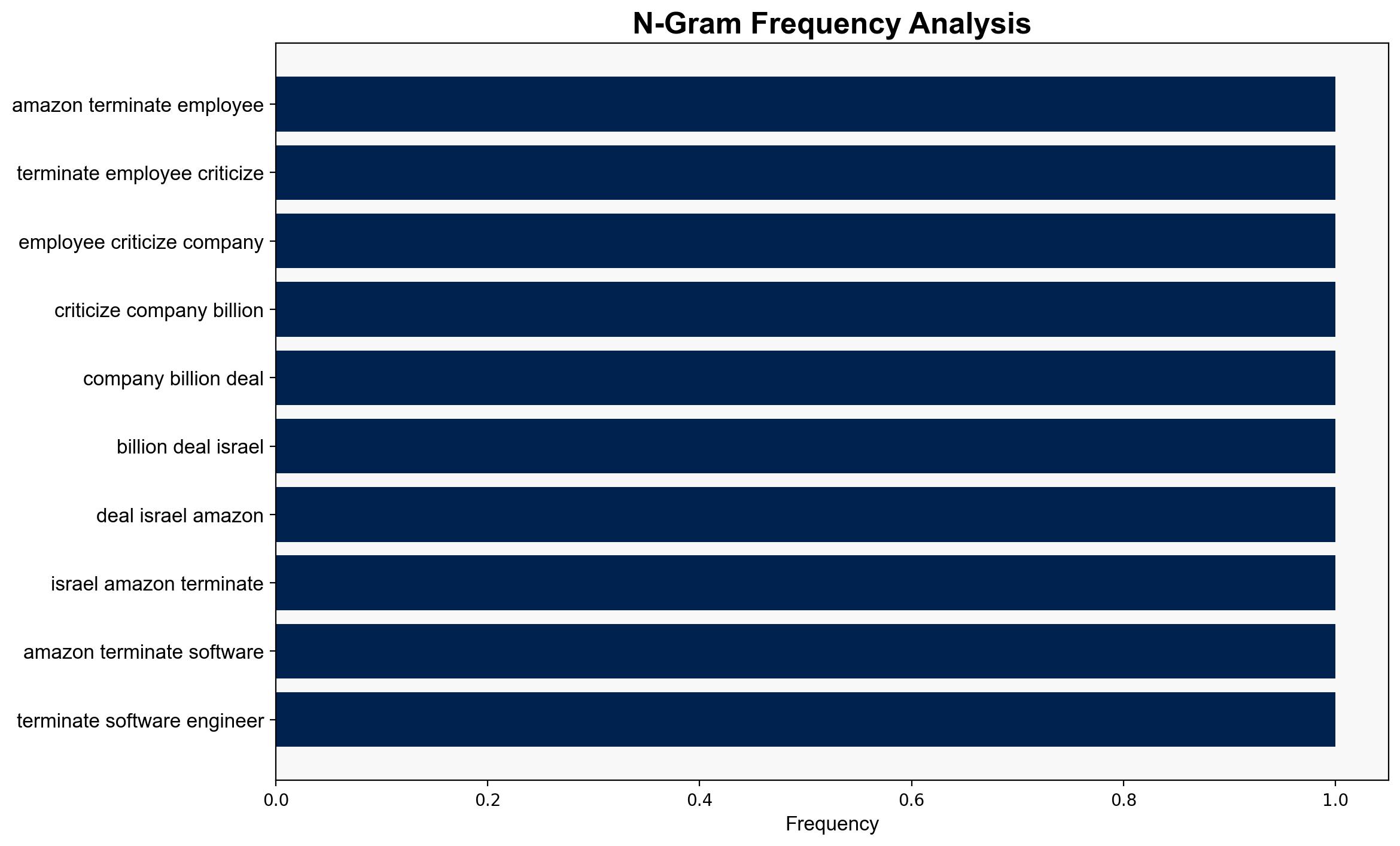Amazon Terminates Employee Who Criticized Company’s 12 Billion Deal With Israel – International Business Times
Published on: 2025-10-14
Intelligence Report: Amazon Terminates Employee Who Criticized Company’s 12 Billion Deal With Israel – International Business Times
1. BLUF (Bottom Line Up Front)
The most supported hypothesis is that Amazon terminated Ahmed Shahrour primarily due to violations of internal policies rather than solely to suppress dissent regarding its contract with Israel. Confidence in this assessment is moderate, given the complexity of corporate governance and public relations dynamics. Recommended action includes monitoring employee sentiment and potential backlash to mitigate reputational risks.
2. Competing Hypotheses
1. **Hypothesis A**: Amazon terminated Ahmed Shahrour to enforce internal policy compliance, as his actions violated company standards regarding the use of resources and conduct.
2. **Hypothesis B**: The termination was primarily an act of retaliation to silence dissent and criticism of Amazon’s involvement in Project Nimbus with Israel.
Using the Analysis of Competing Hypotheses (ACH) 2.0, Hypothesis A is better supported. Evidence includes Amazon’s official statement citing policy violations and the broader context of similar actions in the tech industry. Hypothesis B is less supported due to the lack of direct evidence linking the termination solely to dissent suppression.
3. Key Assumptions and Red Flags
– **Assumptions**: It is assumed that Amazon’s stated reasons for termination are accurate and that internal policies are consistently enforced.
– **Red Flags**: The timing of the termination following public criticism raises questions about potential retaliatory motives. The lack of transparency in internal investigations could indicate bias.
– **Blind Spots**: The broader employee sentiment within Amazon regarding Project Nimbus is not fully explored, which could influence future internal dynamics.
4. Implications and Strategic Risks
– **Economic**: Potential reputational damage could affect consumer trust and investor confidence.
– **Geopolitical**: The deal with Israel may attract further scrutiny and protests, impacting Amazon’s operations in sensitive regions.
– **Psychological**: Internal morale could be affected, leading to increased employee activism or attrition.
– **Cyber**: Heightened tensions could increase the risk of cyber-attacks from activist groups or state actors opposed to the deal.
5. Recommendations and Outlook
- Conduct a transparent review of internal policies and their enforcement to reassure employees and stakeholders.
- Engage in dialogue with employee groups to address concerns and prevent further unrest.
- Scenario Projections:
- Best Case: Improved internal communication and policy enforcement lead to reduced tensions and enhanced corporate reputation.
- Worst Case: Continued dissent and public backlash result in significant reputational and financial damage.
- Most Likely: Ongoing scrutiny and moderate internal unrest, requiring strategic communication efforts.
6. Key Individuals and Entities
– Ahmed Shahrour
– Brad Glasser
– Amazon
– Google
– Project Nimbus
7. Thematic Tags
national security threats, cybersecurity, counter-terrorism, regional focus




